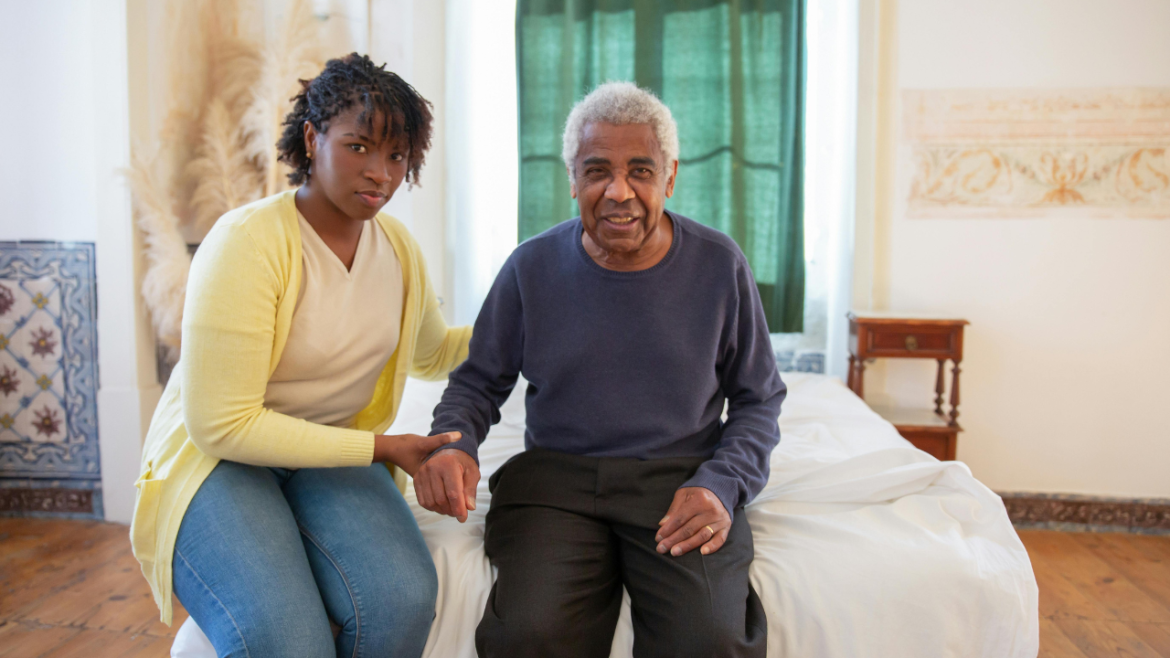The Five Big NO’s In Caring For Someone With Dementia
Did you know that Leading Edge Senior Care has a Dementia Support Group? We meet monthly in Mesa. For more details <click here>
The Five Big NO’s In Caring For Someone With Dementia
Caring for someone with dementia is a profound journey filled with challenges, emotions, and moments of deep connection. To provide the best care, it is crucial to understand the common pitfalls and avoid them. Here are the five big NOs in caring for someone with dementia.
NO to Arguing
Arguing with someone with dementia can be one of the most counterproductive actions a caregiver can take. Dementia affects memory, thinking, and reasoning, making logical arguments often futile. When a person with dementia expresses confusion or a mistaken belief, correcting them harshly or engaging in a debate can lead to frustration and agitation for both parties.
Instead, try to enter their reality and respond with empathy. For example, if they believe they need to go to work despite being retired, acknowledge their feelings and gently redirect the conversation to something more calming.
NO to Overstimulation
Overstimulating environments can be overwhelming for individuals with dementia. Loud noises, crowded spaces, and constant activity can lead to confusion and anxiety. It is essential to create a serene and structured environment. Minimize background noise, keep the living space organized, and establish a daily routine. Familiarity and predictability help reduce stress and make the person with dementia feel more secure. Simple activities like listening to soft music, reading together, or enjoying a quiet walk can provide comfort without causing overstimulation.
NO to Neglecting Self-Care
As a caregiver, neglecting your own needs can lead to burnout, affecting your ability to provide quality care. Caring for someone with dementia is demanding, both physically and emotionally. It is vital to take time for yourself. Engage in activities that you enjoy, seek support from friends or caregiver groups, and don’t hesitate to ask for help when needed. Respite care services can provide temporary relief, allowing you to recharge. Remember, you can only care for someone else effectively if you are also taking care of yourself.
NO to Isolation
Isolation can have detrimental effects on both the person with dementia and the caregiver. Social interaction is essential for mental and emotional well-being. Encourage activities that promote social engagement. This could include attending support groups, participating in community activities, or simply spending time with family and friends.
For the person with dementia, socializing can stimulate their mind and improve their mood. For caregivers, connecting with others in similar situations can provide much-needed emotional support and practical advice.
NO to Ignoring Health Concerns
Ignoring or downplaying health concerns, whether they pertain to the person with dementia or the caregiver, can have serious consequences. Dementia often comes with other health issues that require attention. Regular medical check-ups, a balanced diet, and appropriate exercise are critical. Be vigilant for any changes in health, mood, or behavior and consult healthcare professionals as needed. For caregivers, maintaining your own health is just as important. Regular exercise, a healthy diet, and managing stress are essential to staying physically and mentally fit.
Transitioning through these NO’s involves patience and understanding. It’s about creating a nurturing environment where both the caregiver and the person with dementia can thrive. Each no represents a common mistake that, when avoided, can lead to a more harmonious and effective caregiving experience.
Practical Tips for Implementation
To avoid arguing, practice validation therapy. This involves acknowledging the person’s feelings and emotions, which helps to build trust and reduce anxiety. When dealing with overstimulation, consider sensory-based activities tailored to their preferences. This could include gardening, painting, or gentle massage. For self-care, set aside specific times each day for activities that relax and rejuvenate you. Engage in hobbies, exercise, or simply rest.
To combat isolation, schedule regular social activities. Virtual gatherings, phone calls, or safe in-person visits can make a significant difference. Finally, prioritize health by creating a comprehensive care plan. This should include medical appointments, physical activities, and nutritional plans.
Conclusion
Caring for someone with dementia requires a thoughtful approach, focusing on what to avoid just as much as what to do. By steering clear of these five big NO’s, caregivers can create a more supportive and loving environment.
This not only enhances the quality of life for the person with dementia but also preserves the well-being of the caregiver. With patience, empathy, and a proactive mindset, the caregiving journey can be rewarding and enriching for both.

